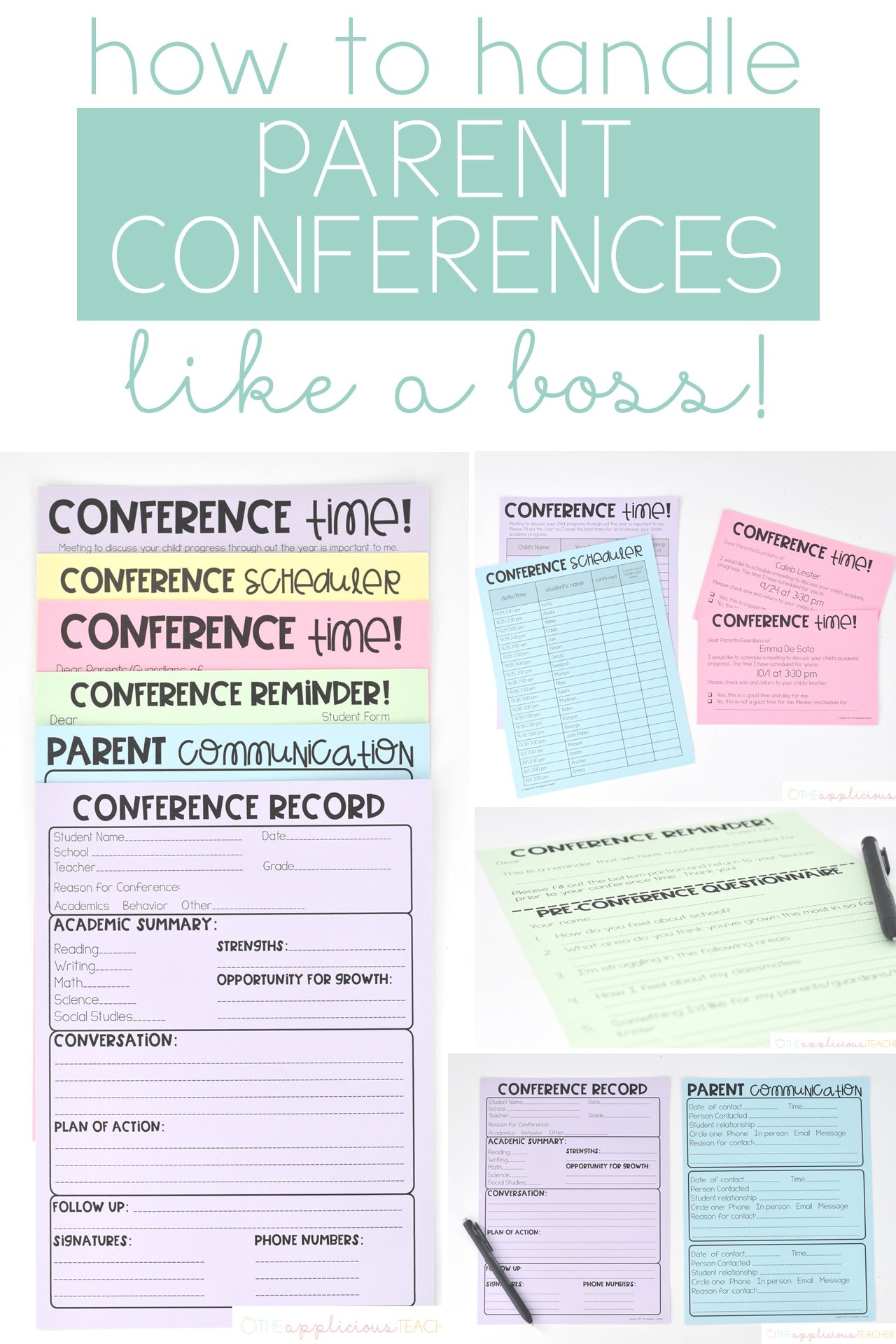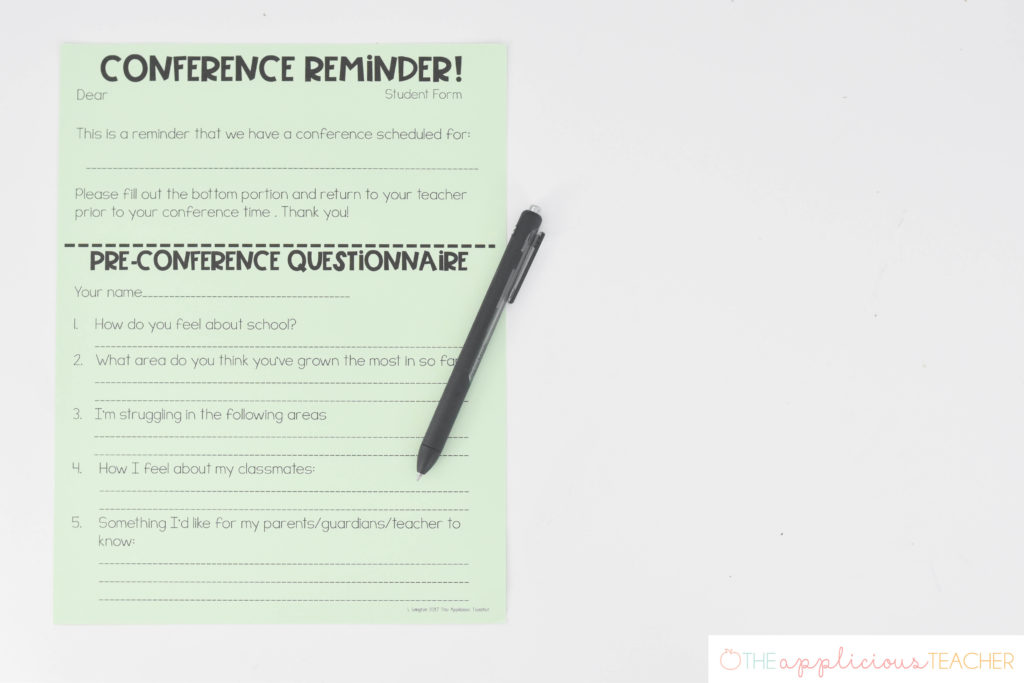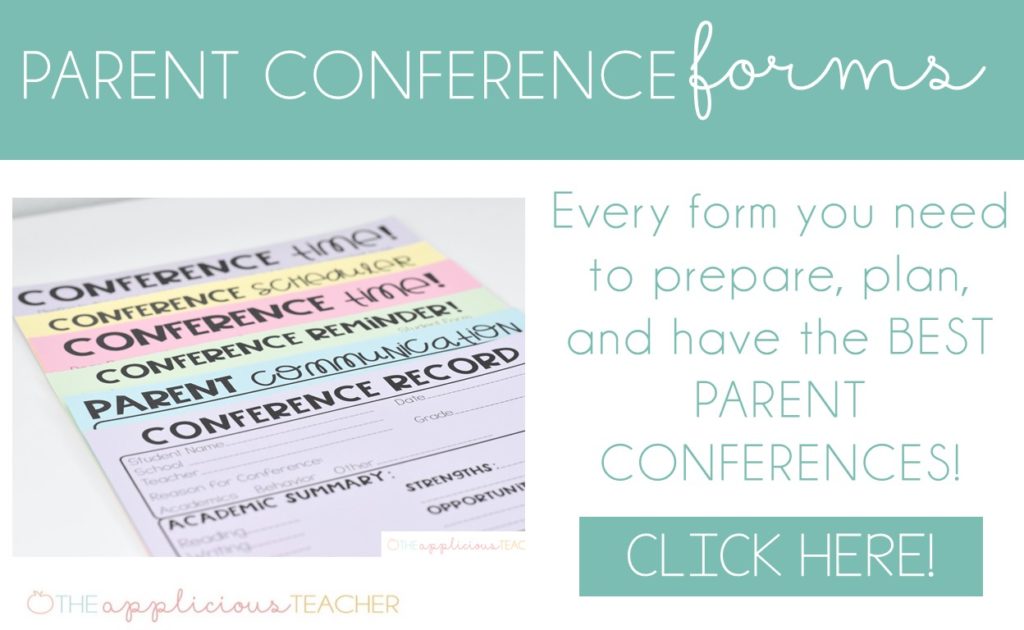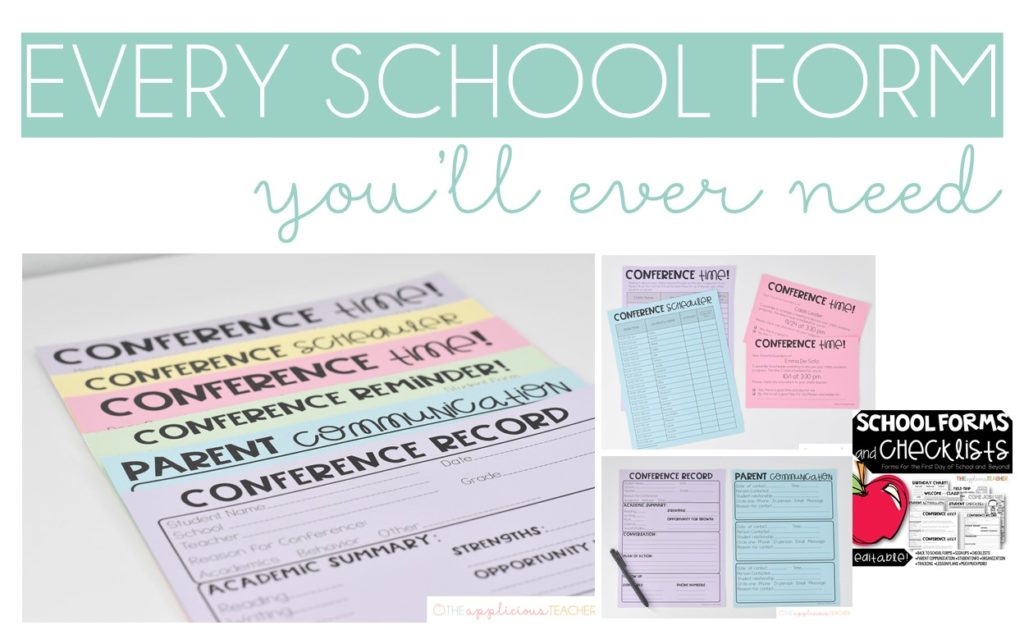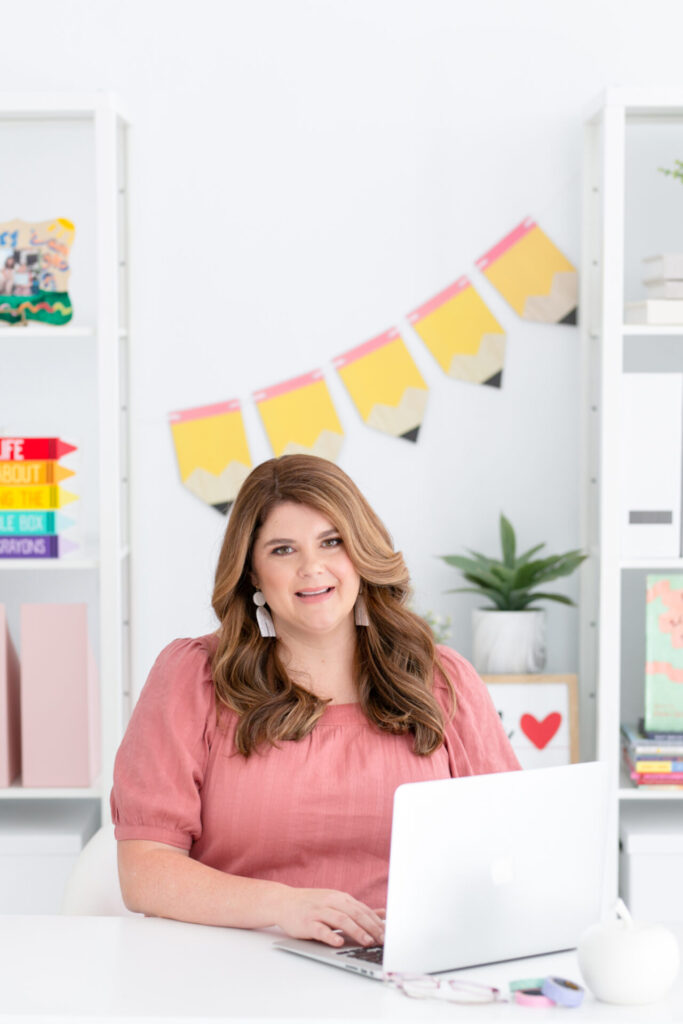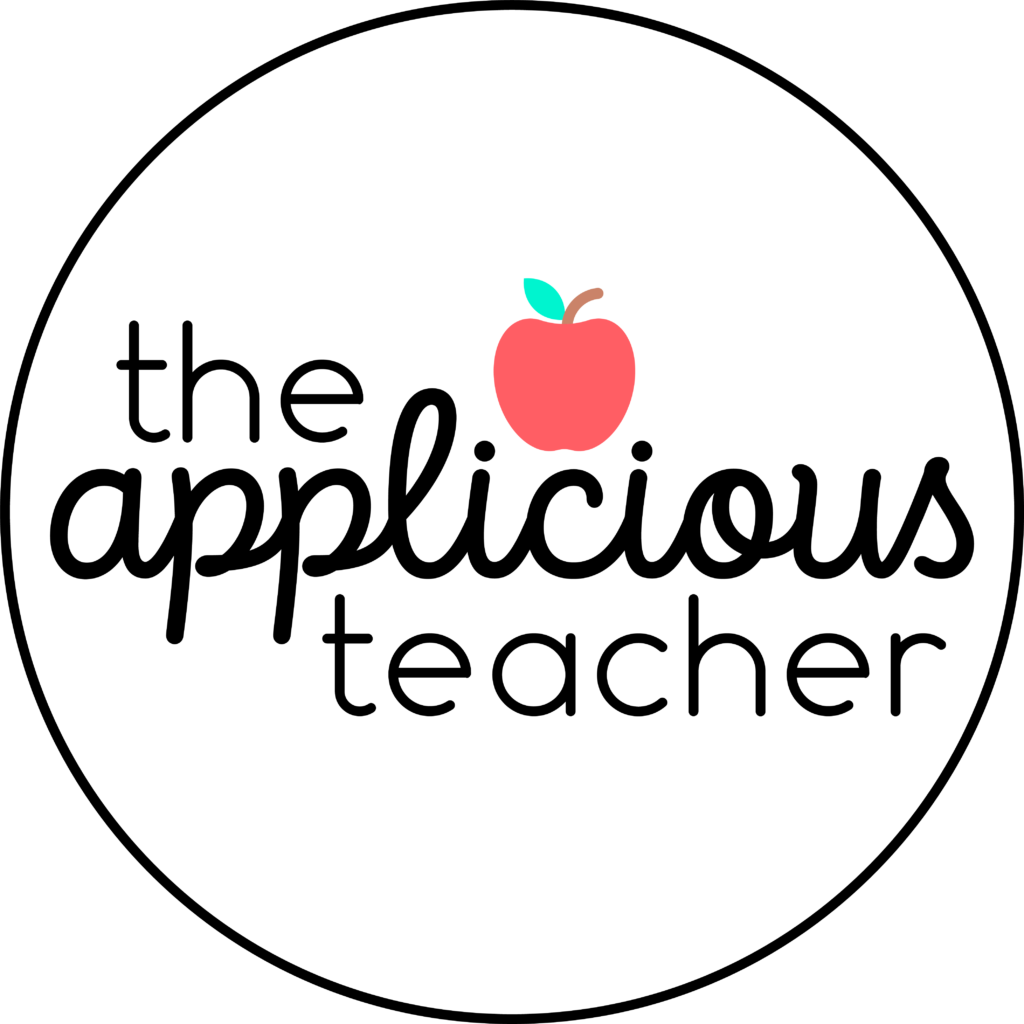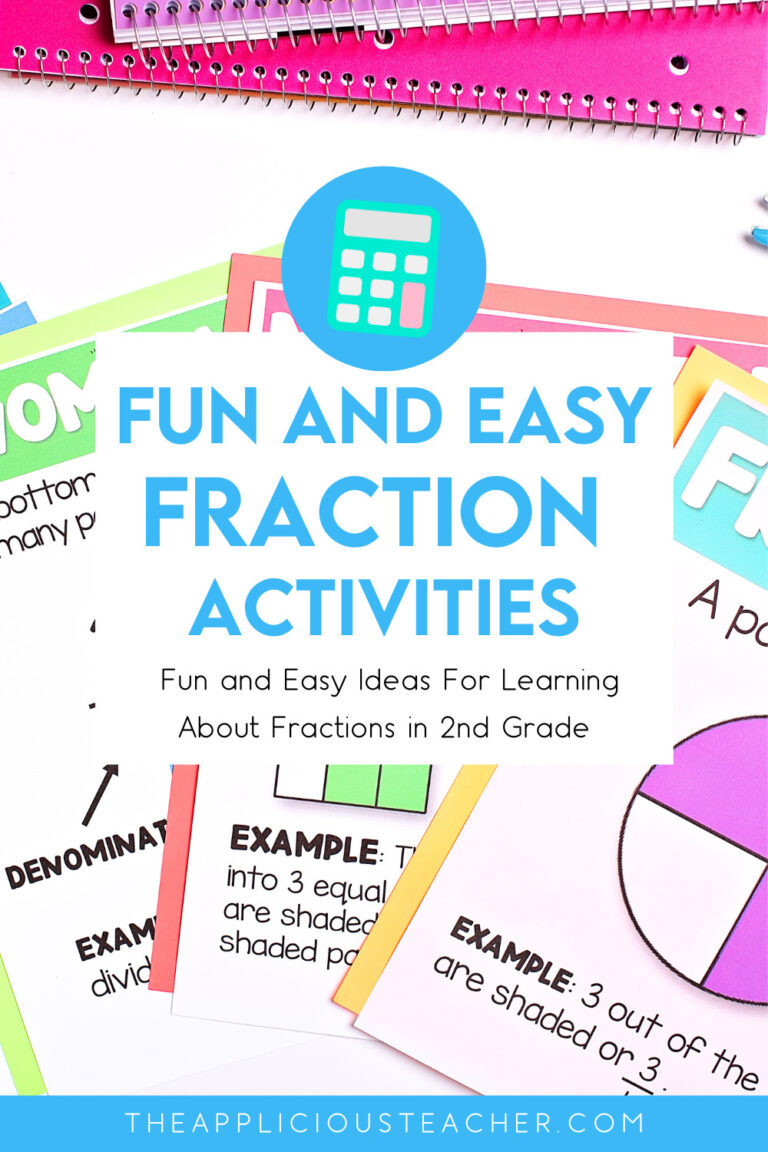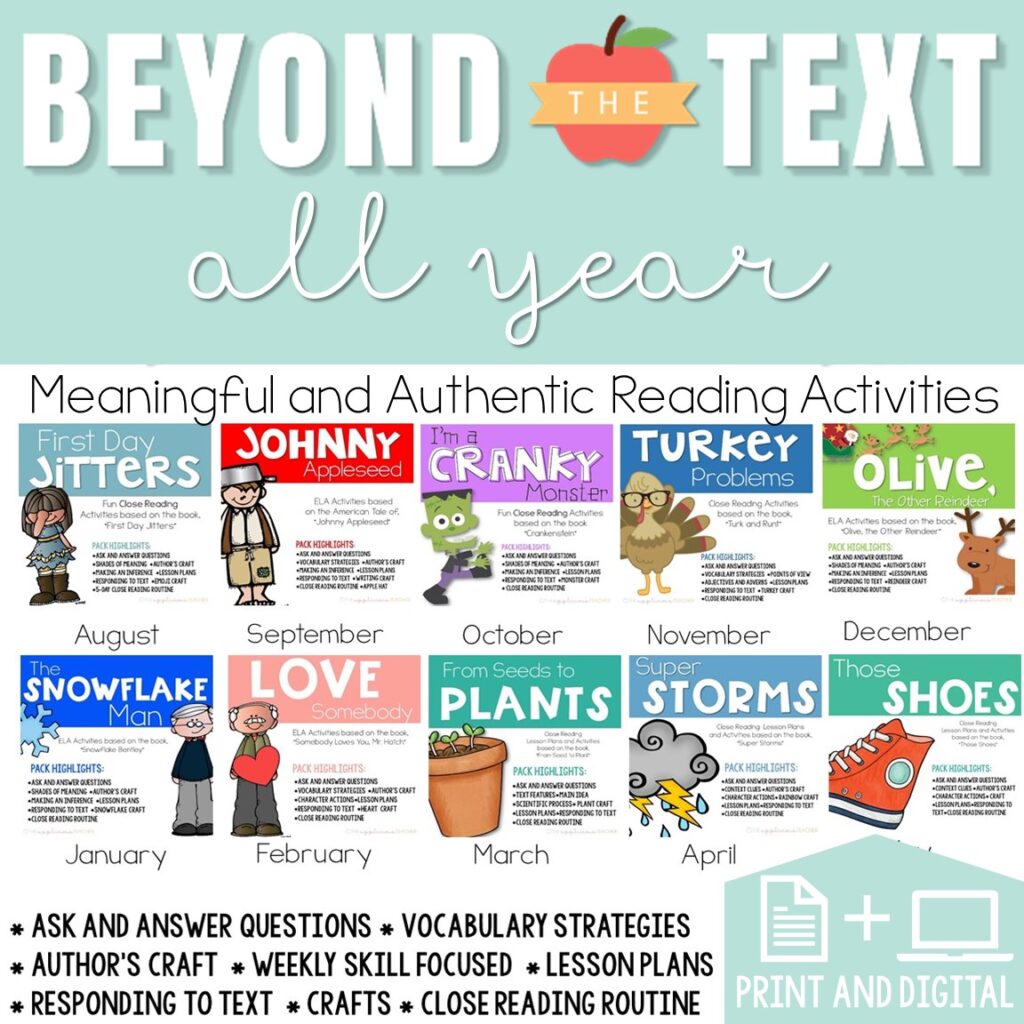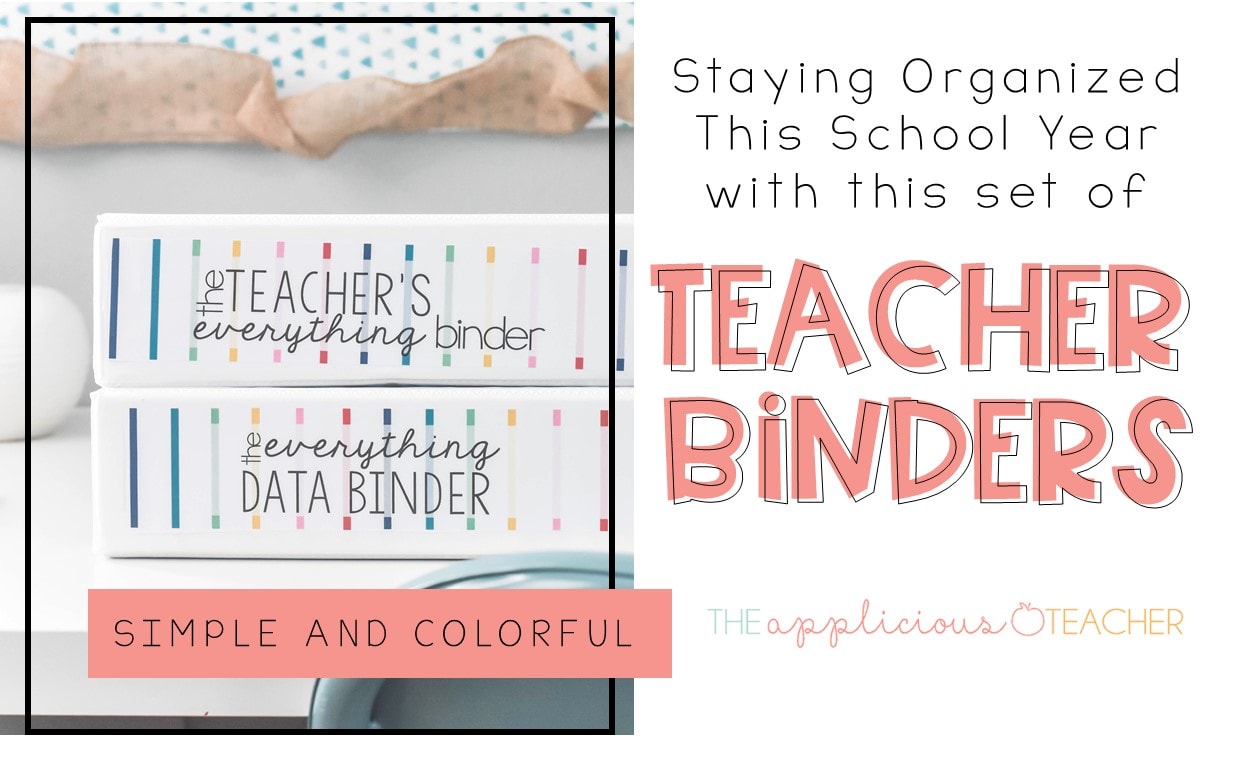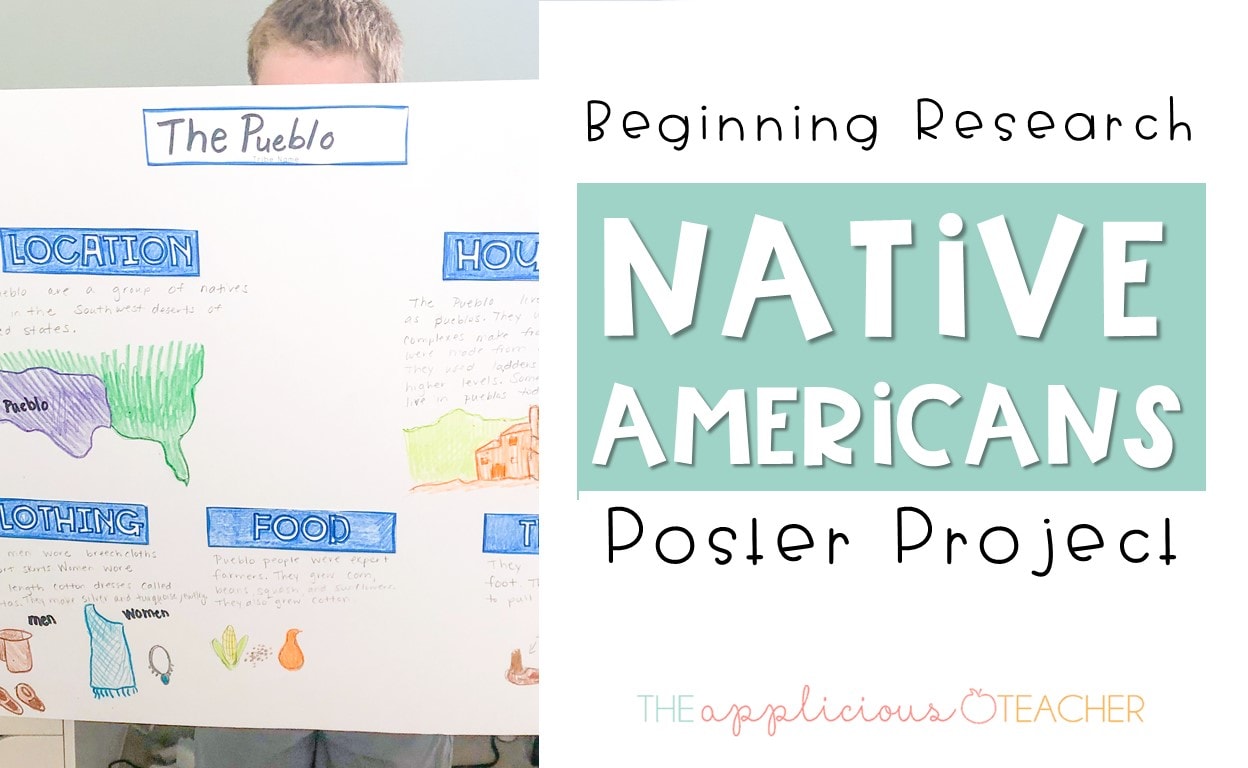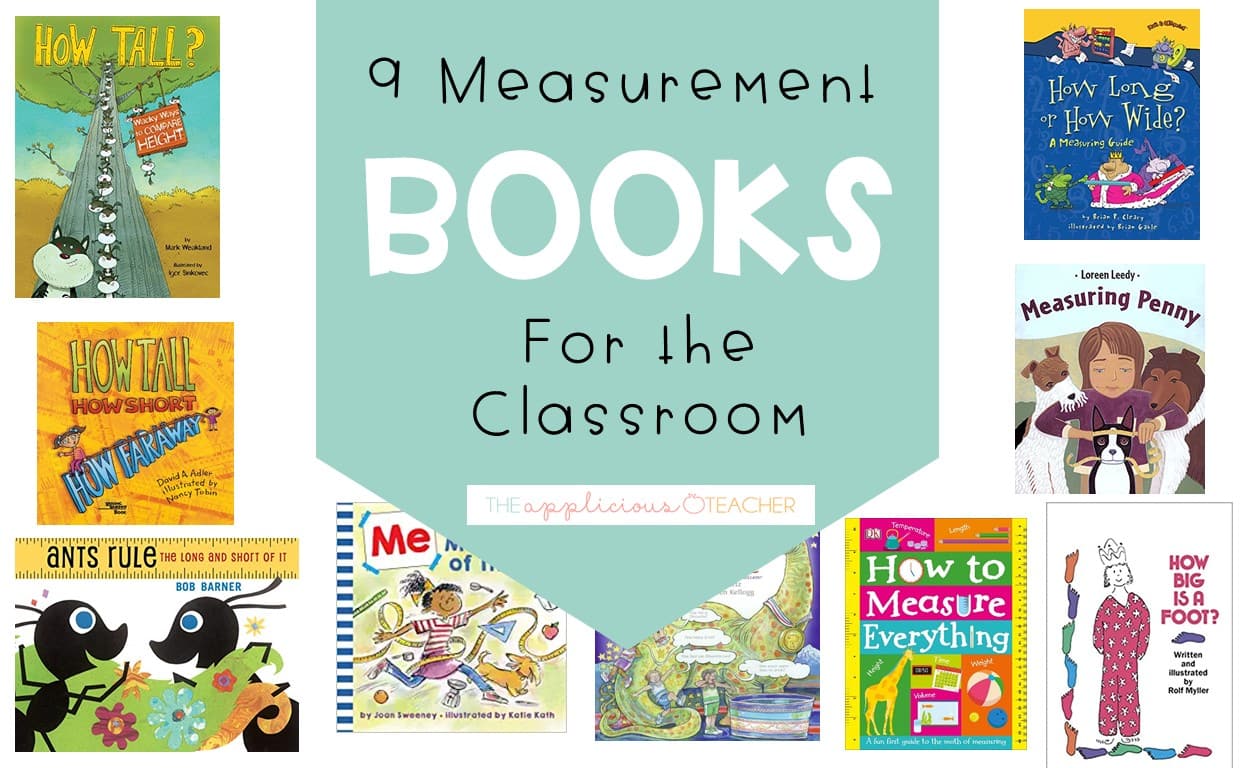
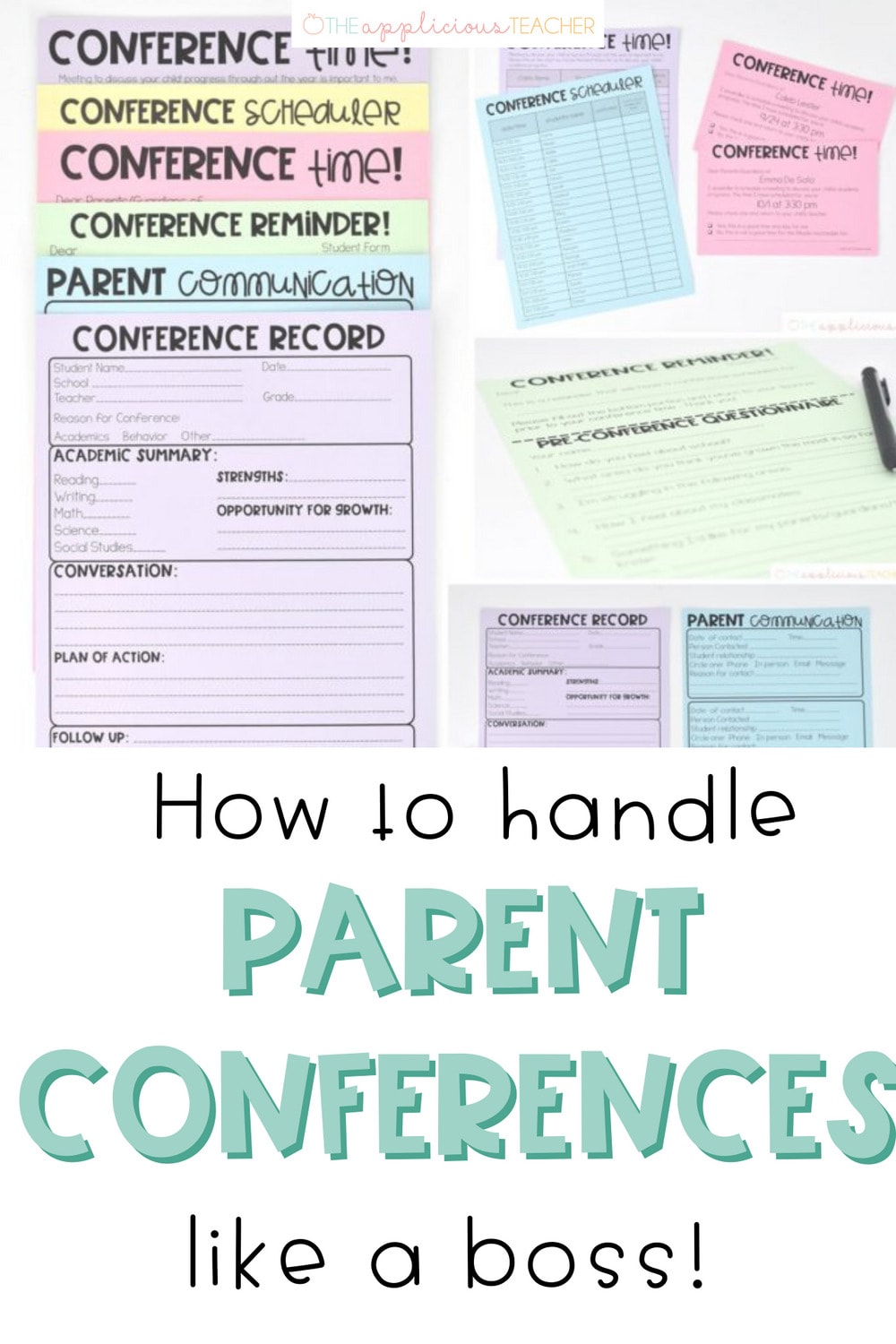
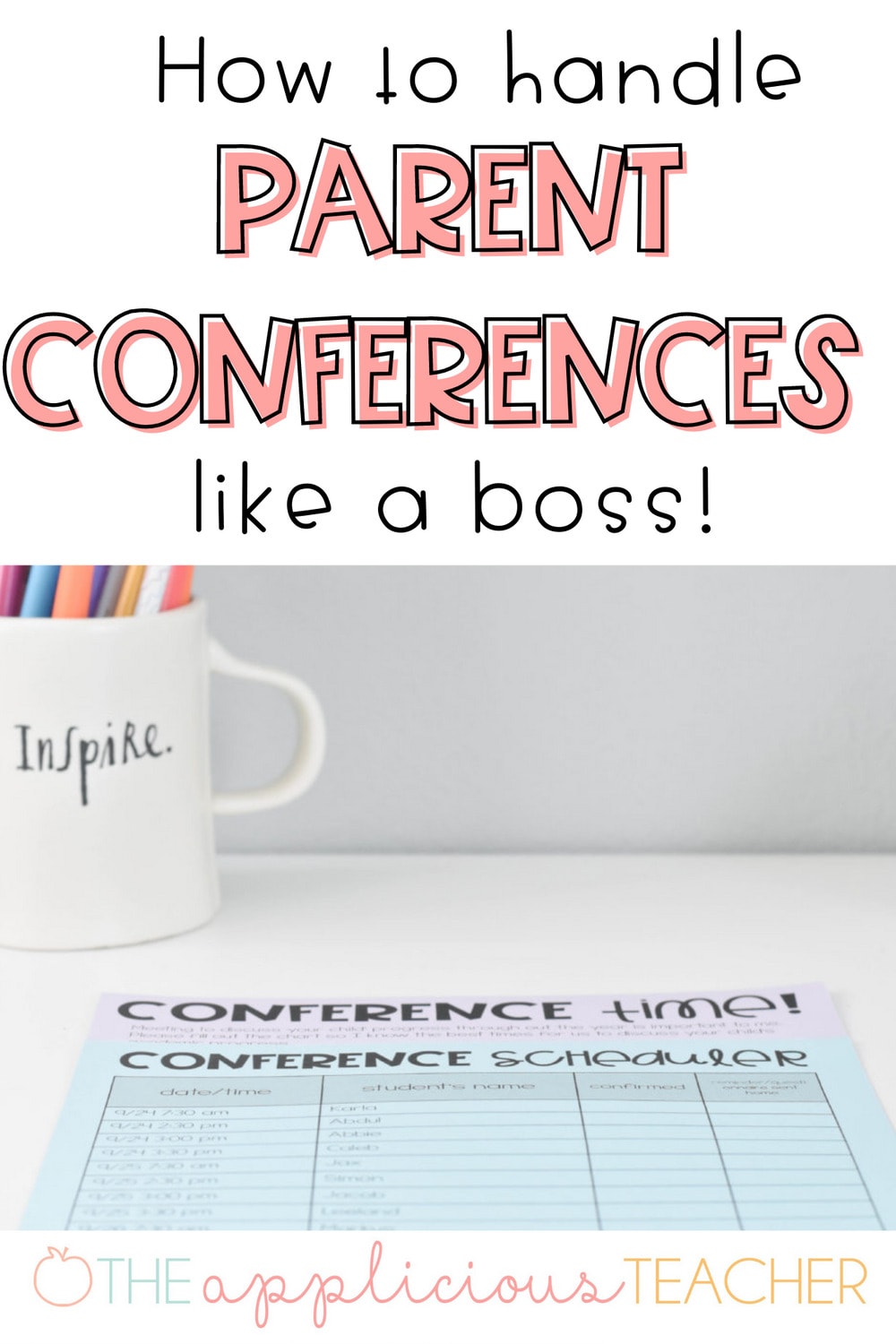
I’ve seen parent/teacher conferences done a gazillion different ways:
- on the phone
- once a year
- only the “bad” kids.
- at the end of the year when promotion is in danger
I’ve even heard of districts having “Conference Days” where all parents can queue up and meet with their child’s teacher for about 10-15 mins, then are sent on their way.
In my district, conferences are left up to the professional judgment of the teacher. I’ve had a few questions lately on how I structure my conferences with parents, so I thought I’d share how I “flex” my professional judgment on meeting with my parents.
Planning for Parent/Teacher Conferences
I like to start planning conferences from day one. As early as “Meet the Teacher” or “Open House”, I have out my “Conference Time” Sign up sheet.
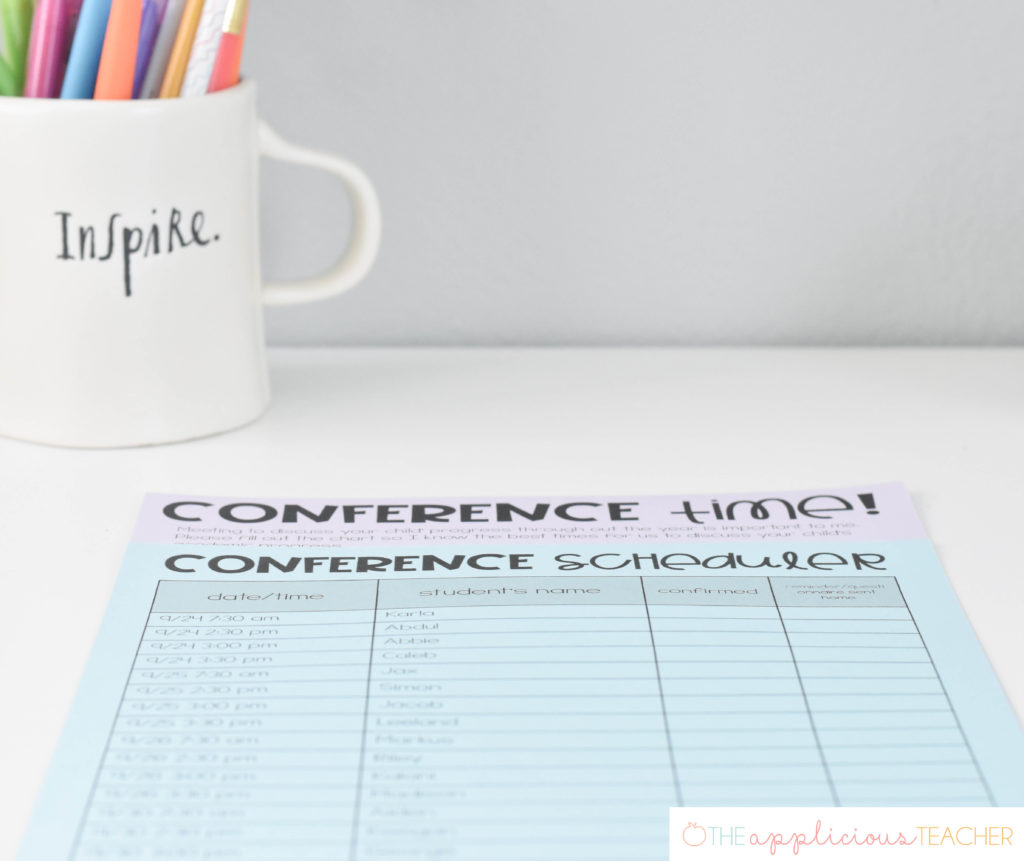
Parent Conferences with a Paper Request Form
One of my preferred methods is using a “Conference Time” request form. Call me old-fashioned, but this makes scheduling conferences a little more streamlined for me.
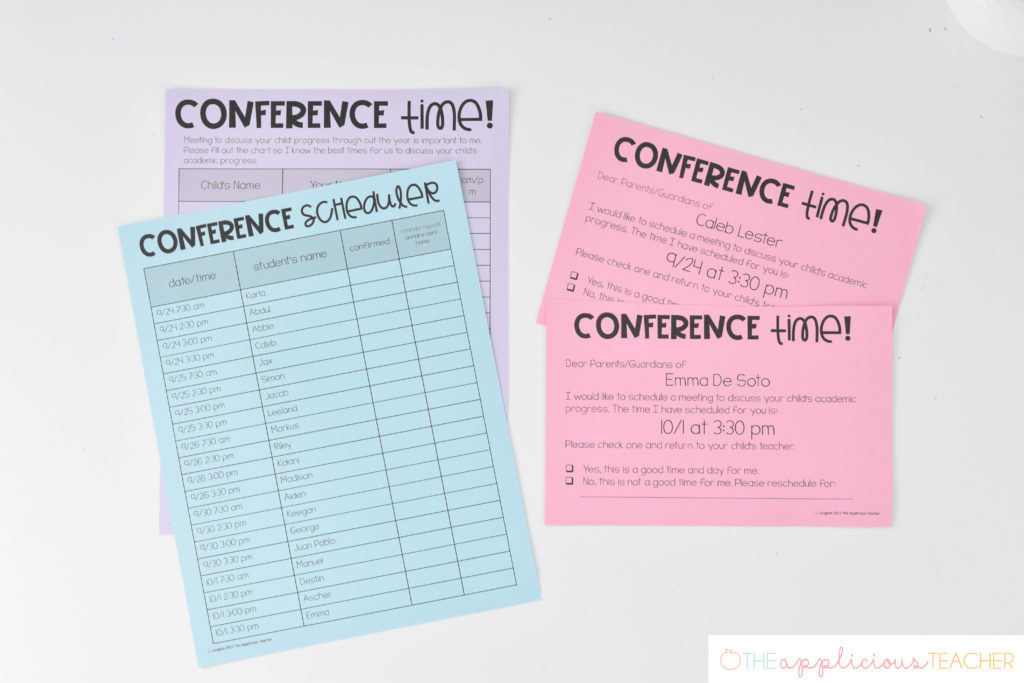
First, I go through and schedule the times and days I’m available to meet using this conference scheduler form. I like to keep my times pretty uniform across the board. Some mornings, mostly afternoons, set in 30-minute intervals.
From there, I use the parent conference time sign-up sheet and write in student names into the different time and day slots.
Then, I fill out one of these request forms for each student. I print out a few onto bright-colored paper. I prefer blue or green. They are super fast and easy to use. I like that they can either agree to the time set, or suggest a better time. If the time works, they sign it back, and I write the day and time on my calendar and check off the conference time on the time slot form. If it doesn’t work, I look at their suggested time and try to find a date and time that will work for both of us. Normally, I only have to go back and forth once before we have our time set!
Scheduling Parent Conferences Online
I’ve also used online programs like “SignUpGenius” to schedule parent conferences. What I liked about programs like this was I could set specific times and days and send out requests to parents via email. Then, they can “sign up” for the available time and day.
This website is a great way to go “green” with your meeting scheduling. (But honestly, it isn’t as easy to set up multiple sign-up times and days! So, if you need different times on different days… it could be a little tricky!)
Also, parents can literally sign up at any time (unless you’re removing days of slots on the forms. I’ve had this happen a few different times, where parents literally sign up the day of; I had no notice other than a quick email from Sign-up Genius! YIKES!
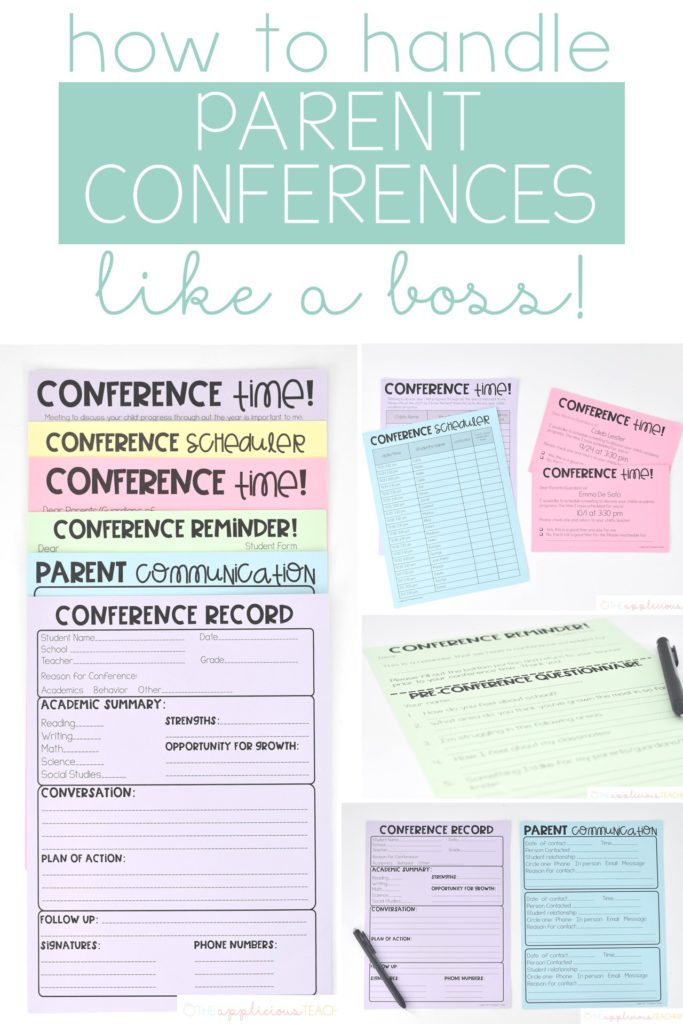
Pre-Meeting Questionnaire for Parent Conferences
About a week before our scheduled meeting, I send home a reminder and a parent questionnaire.
Parents fill out the questionnaire and keep the top of the sheet for their records. I use the answers as a guide for my conference.
This is in addition to academics, behavior, goals, and overall social health of the student. In addition, I like to have students fill out a questionnaire form, too. This allows me to get their perspective on how school is going!
You can grab all the forms I use in my School Forms and Checklists Pack.
How Often to Meet with Parents for Conferences
I like to meet with parents *at least* three times a year. To me, this guarantees a “touch base” with parents on their child’s academic focus and can serve as a lamppost on their progression of skills from the beginning of the year until the end. It also helps me build a stronger rapport with parents and guardians. Let’s them know there’s an open line of communication between us, even if we’re not touching base every single week. Meet with Parents three times a year using these time frames:
- First conference: late September/early October
- Second conference: late January/early February
- Third conference: late April/early May
Although I’ve always done three conferences a year, I’ve learned from teaching at multiple schools and in multiple districts that this is a very high standard for meeting with parents. Most teachers plan to meet with parents once a year. For me, once is a minimum. But that’s a personal choice. You need to do what works best for you and your students.
What to Discuss at Parent/Teacher Meetings
Beginning of the Year Conference Talking Points
I like to schedule the beginning of the year conferences for later September and early October. This gives me time to really get to know my students and allows time for the beginning of-year bustle.
For the initial conference, I focus in on all that beginning of the year data. For the first conference, plan to discuss where their students is currently against the beginning of the year benchmarks. Also, discuss long-term goals that parents may have for their child, as well as the child’s long-term learning goals for themselves.
I had parents fill out a Goal Setting form during Open House and keep them in their child’s information folder for the year. Makes it easy to reference back to as we move throughout the year. (These are also in my School Forms and Checklists Pack) I also have the class fill one out that I keep in their folders to reference throughout the year, too!
We also set growth expectations for math and reading for the year. To set those goals, I like to use the idea of “one year’s growth in one year’s time.”
Middle of the Year Conference Talking Points
Mid-year conferences serve as a check-in on student growth for the year. We review the learning goals and make any needed adjustments. It also provides a chance for parents to ask questions about their students’ success or to discuss strategies on how they can help their child from home.
End of Year Conference Talking Points
The last Parent/Teacher conference of the year serves as a touch base for the end of the year. I like to discuss the students’ growth from the beginning of the year and capitalize on their child’s success. We also discuss any concerns with their child moving onto 3rd grade and review what their child should be working on over the summer so they don’t lose all that precious knowledge they just gained.
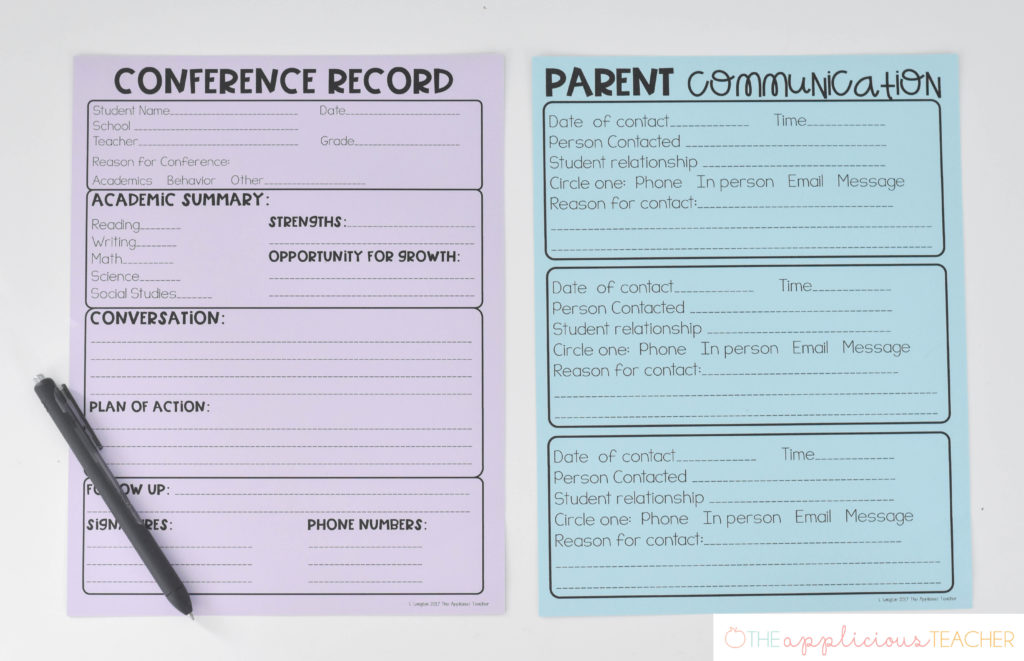
Tips for a Successful Parent/Teacher Conference
Ok, now that you understand how I set up parent conferences and what we review, let’s talk about how you can ensure this year’s conferences are the best yet!
TIP #1- Be Prepared!
Just like The Lion King song tells us… you need to be prepared!
Have everything you’d like to discuss set aside and ready. That’s any data, print outs, and conference forms typed out and ready before the conference starts. It will not only save you time, but allow you to review what you’ll be discussing and formulate a plan before parents are sitting in front of you.
TIP #2- Balance the Good and Bad
I know it’s tempting to use conference time as a time to air all the grievances of a student to their parents… but you need to keep a balance between the good and bad. That doesn’t mean you’re not discussing the bad… it just means you’re FIRST discussing all the good things about this student.
Like what an outstanding artist they are, or how friendly they can be, whatever it is… always lead a conference with what’s good. I like to start with social-emotional health in 2nd grade and then lead into academics. Parents love to hear good stories about their kids.
This is the time to share them! I’ve kept an anecdotal notebook for this exact reason! Each page I’d label for a student and as the school days go on, I’d add little tid-bits, concerns, or stories about the student. This usually only takes five minutes or so at the end of the day. Then, at conference time, I was able to remember good things about each child quickly.
From there, you can discuss concerns. If there is many, share two (three max!) and have a plan of action or suggestions for solving the issues. End the conference on a positive note. Maybe it’s reinforcing the plans you have set or sharing about a project you know the student will be excited about. Also, be sure to establish when you will meet again (if necessary).
TIP #3- Have a Plan of Action Ahead of Time
So often, our conferences focus on the “bad” things kids are doing, and we forget to discuss how we plan to fix the issues.
I remember my first year of teaching, I was completely fed up with a student. They were disrespectful, mean, and disruptive. Many of my colleagues offered the old standby, “Call his parents!” and so I did… at least once a day. Oh… but did this ever back-fire!
After one particularly rough day, I called the student’s mother to discuss his behavior. At the end of the one-sided call (me talking loudly and her only listening), his mother started sobbing… like uncontrollably sobbing! And I was like… yes, this is how I feel! But then she shared why she was crying, and my heart sank.
She had no idea what to do about her son’s behavior in class. He was difficult at home, but not as out of control. She punished him, rewarded him… but it wasn’t working. She was tired of hearing about how terrible her son was and didn’t know what to do anymore.
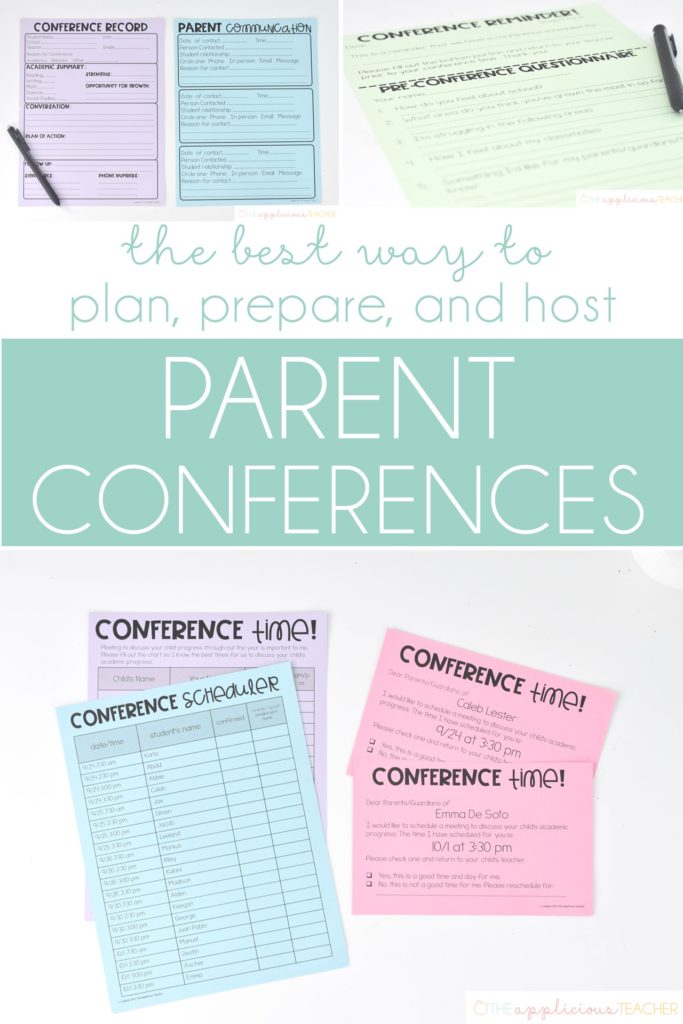
That’s when I realized I had no plan of action. Me calling her wasn’t doing any good because I wasn’t offering any suggestions of how she could assist me from home. She was really only a sounding board for my complaints, and honestly, what parent wants to hear all the complaints about their child? None… I’ll tell you that!
After hanging up with her, I did some reflecting. It was time to have a plan of action!
At our conference later the next week, I shared a plan that had systematic consequences at home and at school. I shared the sticker chart I planned to use and how their son could earn stickers. We also discussed what rewards and consequences were acceptable and how his mom could support him from home.
You guys… what could have been a terrible conference where the parent feels defeated and that I don’t like their kid turned into a meeting of a team who was coming together to solve an issue.
And you know what? That plan of action worked! He responded to the sticker chart and loved earning rewards at home and at school. Eventually, his grades got better. I still called his mom, but instead of every day, it went to once or twice a week. More times than not, it was for good- like how her son got a compliment from the music teacher or what a great helper he was in math. So, the lesson here? Have a plan of action ready to share, and work with the parent or support person at home to fine-tune it!
Parent Teacher Conference Forms
You can grab all the forms I mentioned above and so many more as part of my School Forms and Checklists pack! Each page is editable so you can customize each page so they can work for you! You can grab them here on my site or here in my TeachersPayTeachers Store!
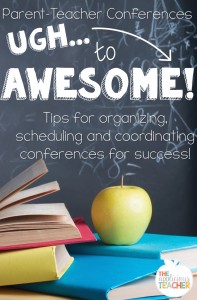
Sign up to snag these!

Receive all these classroom management tools right to your inbox!
Success! Now check your email to confirm your subscription.

